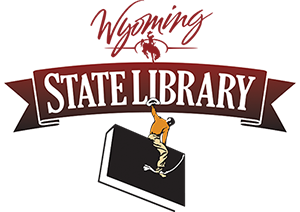 By Doug Johnson
By Doug Johnson
Reposted from the Blue Skunk Blog
I have the undeserved reputation of being a hard worker. Our school’s technology department runs as smoothly as one can expect these things to run. I manage to get a few things written and published each year and take an active part in several professional and community organizations. I take all my vacation time, watch too many movies, socialize, and get in a bit of exercise. But I am truly at heart, a very lazy individual.
As media and technology professionals we are being asked to do an increasing number of tasks that are often increasingly complex. As schools reduce “support” personnel, those of us remaining are picking up the slack. It behooves us all to thing about our time management skills. May I share a few of mine?
- Never do something you can foist on to someone else. (Oops, I mean delegate.) If you have support staff, use them to the maximum. It’s surprising how talented and creative people can be when you ask it of them. On the flip side, insist that anyone you supervise does not put in unpaid overtime. Period.
- Examine whether work that takes up your time is worthwhile. Some tasks are simply not worth doing or not worth doing very well. For many reports and inventories, if you can be 90% accurate that’s good enough. A job not worth doing is not worth doing well.
- Examine whether the work is really yours. I have never liked the whine “It’s not my job.” but sometimes we really aren’t the right person for some jobs we are asked to do. I no longer review and recommend curricular software. That is no more my job than reviewing textbooks – it should be done by content area curriculum writers. Be careful about this one through. If a job is mission critical, it can add to your job security.
- Some projects just need to be dumped, losses cut. I don’t to do this often, but every once in awhile it’s about all you can do.
- Never save anything that you know somebody else keeps. You can always get it from the other person. I only have one small file drawer and I probably only look at half a dozen folders in it. A good filing system for saved files on your computer is a real time saver.
- Toss ALL junk mail and just skim journals and magazines. I read one article out of fifty, but still feel fairly in the know.
- Use the e-mail delete key early and often. Set your e-mail filter to eliminate as much spam as possible and to direct messages from listservs into their own folders. Read listserv subject headings and mass delete those of little relevance. Only check your e-mail a couple times a day.
- Spend the last hour of each week just get the top of your desk cleared off. The illusion of control is important and a neat desk is a good way to start any week. Spend a morning twice a year to clean and organize your office. A few minutes organizing saves lots of time in the long run. (Great task if the network is down.)
- Learn to take breaks when needed. Nothing slows me down like a brain-clog – a task that is seemingly impossible to complete. Get away from it, take a short walk, get a fresh cup of coffee, and then come back to it.
- Like what you do. If you are miserable in your job, find a different line of work. If you have a passion for your work, it’s not really work at all.
All these suggestions are easy to make, but difficult to practice. But it is important to our patrons, our organizations, and to ourselves that on a daily basis we consciously evaluate how we direct our energies. As Annie Dillard reminds us, “How we spend our days is, of course, how we spend our lives.”
This work is licensed under a Creative Commons Attribution-Noncommercial-Share Alike 3.0 United States License.
